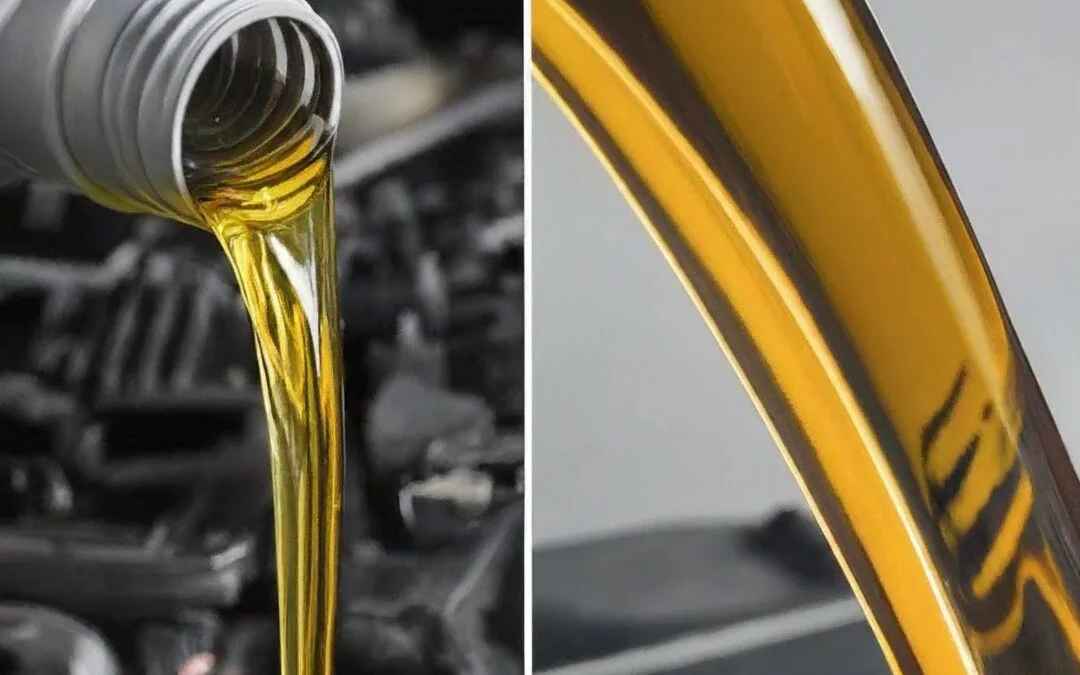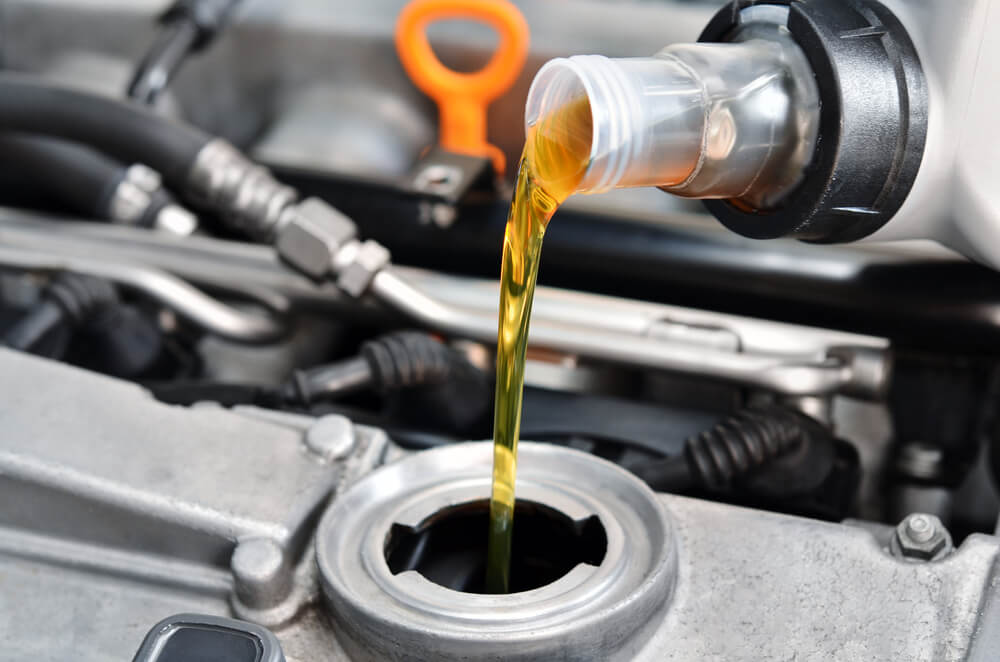Title: Understanding What Causes Motor Oil to Dry Up: A Comprehensive Guide
Introduction:
The phenomenon of motor oil drying up is a critical aspect of engine maintenance that often goes unnoticed. Understanding the factors behind this process is essential for ensuring peak performance and longevity of our vehicles.
In this comprehensive guide, we delve into the intricate world of motor oil chemistry and explore the myriad of factors that contribute to its drying up. From the relentless onslaught of heat to the subtle effects of engine contaminants, each element plays a crucial role in the gradual degradation of motor oil.
Join us on this journey as we uncover the mysteries behind what dries up motor oil, equipping you with the knowledge needed to safeguard your engine’s health and prolong its lifespan.
Explanation of the components of motor oil
Understanding these components is fundamental to grasping the role motor oil plays in engine performance. Let’s explore the key constituents of motor oil:
- Base Oils: The foundation of any motor oil formulation is its base oils. These oils can be derived from various sources, including mineral, synthetic, or semi-synthetic origins. Each type offers distinct characteristics that influence the overall performance of the oil.
- Mineral Base Oils: Extracted from crude oil through refining processes, mineral base oils are known for their natural lubricating properties and cost-effectiveness.
- Synthetic Base Oils: Engineered in laboratories, synthetic base oils offer superior performance in extreme temperatures and conditions. They exhibit enhanced thermal stability, viscosity index, and resistance to oxidation.
- Semi-synthetic Base Oils: Combining the best attributes of mineral and synthetic oils, semi-synthetic base oils strike a balance between performance and cost, making them a popular choice for many motorists.
- Additives: In addition to base oils, motor oil formulations incorporate a myriad of additives, each serving a specific function to enhance performance and longevity. These additives are meticulously blended in precise proportions to tailor the oil’s properties to meet the demands of modern engines. Some common additives include:
- Detergents and Dispersants: These additives help prevent the formation of deposits and sludge by keeping contaminants suspended in the oil, allowing them to be effectively removed during oil changes.
- Anti-wear Agents: Designed to reduce friction and wear between moving engine parts, anti-wear additives form a protective film on metal surfaces, minimizing damage and extending component life.
- Viscosity Modifiers: Viscosity modifiers alter the oil’s viscosity characteristics, ensuring optimal flow and lubrication across a wide range of temperatures. They enable the oil to maintain its viscosity at high temperatures while improving flow at low temperatures.
- Anti-oxidants: As motor oil is subjected to heat and oxygen exposure during engine operation, anti-oxidants help inhibit oxidation, preventing the oil from breaking down and forming harmful sludge and varnish deposits.
By blending base oils with carefully selected additives, motor oil manufacturers create formulations tailored to meet the demanding requirements of today’s engines. This synergistic combination of components ensures that motor oil not only lubricates but also cleanses, protects, and prolongs the life of vital engine components, safeguarding the heart of your vehicle against wear and tear.
How the composition influences the drying up process
The composition of motor oil plays a pivotal role in determining its susceptibility to drying up, a process that can significantly impact engine performance and longevity. Understanding how the composition influences this phenomenon is essential for maintaining optimal engine health. Here’s how the composition of motor oil influences the drying up process:
- Base Oils: The type and quality of base oils used in motor oil formulations greatly influence their susceptibility to drying up. Different base oils, such as mineral, synthetic, or semi-synthetic, have varying degrees of resistance to oxidation and evaporation.
- Mineral Base Oils: Traditional mineral base oils, derived from crude oil through refining processes, are generally more prone to oxidation and evaporation compared to synthetic counterparts. Their molecular structure makes them more susceptible to breaking down when exposed to high temperatures and prolonged use.
- Synthetic Base Oils: Synthetic base oils, engineered in laboratories, offer superior resistance to oxidation and evaporation. Their uniform molecular structure and higher thermal stability enable them to withstand extreme temperatures and prolonged operating conditions without drying up as quickly.
- Semi-synthetic Base Oils: Semi-synthetic oils, blending mineral and synthetic base oils, offer a balance between performance and cost. While they provide improved resistance to drying up compared to pure mineral oils, they may not offer the same level of protection as full synthetics.
- Additives: The additives incorporated into motor oil formulations also play a crucial role in influencing the drying up process. These additives are specifically designed to enhance the oil’s performance and protective properties, including its resistance to oxidation and evaporation.
- Anti-oxidants: Anti-oxidant additives help inhibit the oxidation of motor oil, a process that can lead to the formation of sludge and deposits. By neutralizing free radicals and oxidative by-products, anti-oxidants extend the oil’s service life and maintain its stability over time.
- Viscosity Modifiers: Viscosity modifiers improve the oil’s viscosity characteristics, ensuring optimal flow and lubrication across a wide range of temperatures. By preventing excessive thinning or thickening of the oil, viscosity modifiers help maintain its protective properties and resist drying up.
- Seal Conditioners: Some additives, known as seal conditioners, are designed to rejuvenate and maintain engine seals, preventing oil leaks and minimizing the loss of oil through evaporation.
By carefully selecting the appropriate base oils and additives and optimizing their proportions in motor oil formulations, manufacturers can mitigate the effects of drying up. However, factors such as operating conditions, engine design, and maintenance practices also play significant roles in determining the longevity and performance of motor oil. Regular oil changes with high-quality motor oil, combined with proactive maintenance, are essential for preserving engine health and minimizing the risk of drying up.
Factors Contributing to Motor Oil Drying Up Factors
The phenomenon of motor oil drying up is influenced by various factors, each playing a significant role in the degradation of the oil’s performance and protective properties. Understanding these factors is essential for effectively managing engine maintenance and prolonging the lifespan of critical engine components. Here are the key factors contributing to motor oil drying up:
- Temperature and Heat Exposure: High temperatures accelerate the oxidation and evaporation of motor oil, leading to its premature drying up. Factors such as engine operation, ambient temperature, and driving conditions can all contribute to increased heat exposure.
- Engine Operating Conditions: Continuous engine operation, particularly under heavy loads or at high speeds, generates elevated temperatures that can degrade the oil more rapidly.
- Ambient Temperature: Hot climates or driving in extreme heat can exacerbate the effects of temperature on motor oil, accelerating its oxidation and evaporation.
- Idling: Extended periods of engine idling, such as in heavy traffic or during prolonged stops, can lead to localized hot spots and increased heat exposure, hastening oil deterioration.
- Engine Type and Design: Different engine types and designs impose varying demands on motor oil, influencing its susceptibility to drying up.
- Gasoline Engines: Gasoline engines typically operate at higher temperatures compared to diesel engines, necessitating motor oils with enhanced thermal stability and resistance to oxidation.
- Diesel Engines: Diesel engines generate higher levels of heat and combustion by-products, placing greater stress on motor oil. Diesel-specific formulations may be required to withstand these harsher operating conditions.
- Contaminants and Additives: Contaminants and the breakdown of additives can compromise the integrity of motor oil, contributing to its drying up.
- Contaminants: Dirt, dust, fuel, water, and combustion by-products can contaminate motor oil, accelerating its degradation and reducing its effectiveness.
- Additives Breakdown: Over time and with exposure to heat and oxygen, the additives blended into motor oil formulations may degrade, diminishing their ability to protect against oxidation, wear, and viscosity changes.
- Age and Mileage: The age and mileage of motor oil can also influence its propensity to dry up and lose effectiveness.
- Aging: Even when not in use, motor oil undergoes gradual oxidation and degradation over time, eventually leading to its drying up.
- Mileage: High mileage or prolonged intervals between oil changes can exacerbate oil degradation, as the oil becomes contaminated with wear particles, dirt, and other debris.
By addressing these factors through proactive maintenance practices such as regular oil changes, monitoring engine operating conditions, and selecting high-quality motor oil suited to the specific requirements of the vehicle, motorists can mitigate the risk of motor oil drying up and ensure optimal engine performance and longevity.
Effects of Dried Up Motor Oil
The effects of dried up motor oil can be detrimental to engine performance, reliability, and longevity. When motor oil loses its lubricating and protective properties due to drying up, several adverse consequences may occur, potentially leading to costly repairs or engine failure. Here are the key effects of dried up motor oil:
- Reduced Lubrication Efficiency: Dried up motor oil loses its ability to form a protective lubricating film between moving engine parts. As a result, friction between metal surfaces increases, leading to excessive wear and tear. Without proper lubrication, engine components such as pistons, cylinders, bearings, and camshafts may experience accelerated degradation and premature failure.
- Increased Wear and Tear on Engine Parts: The lack of adequate lubrication caused by dried up motor oil can result in increased friction and mechanical stress on critical engine components. Over time, this can lead to excessive wear and tear, manifested as scoring, galling, and pitting on metal surfaces. Severe wear can compromise engine performance, decrease fuel efficiency, and ultimately necessitate costly repairs or component replacements.
- Potential Engine Damage and Failure: Continued operation with dried up motor oil puts the engine at risk of severe damage or failure. Without sufficient lubrication, metal-to-metal contact can cause components to seize, resulting in catastrophic engine failure. In extreme cases, overheating and thermal breakdown of engine parts may occur, leading to irreparable damage and the need for engine replacement.
- Implications for Vehicle Performance and Fuel Efficiency: Dried up motor oil can negatively impact overall vehicle performance and fuel efficiency. Increased friction and mechanical resistance within the engine can reduce power output, diminish acceleration, and impair fuel economy. Moreover, engine components subjected to excessive wear and tear may fail to operate optimally, further compromising performance and efficiency.
- Environmental Consequences: In addition to its effects on engine performance, dried up motor oil can pose environmental hazards if not properly addressed. Leaking or burning oil due to degraded seals or gaskets can release harmful pollutants into the environment, contributing to air and water pollution. Furthermore, improper disposal of used motor oil can contaminate soil and groundwater, posing risks to ecosystems and human health.
Overall, the effects of dried up motor oil underscore the importance of regular maintenance and timely oil changes using high-quality lubricants. By ensuring proper lubrication and protection of engine components, motorists can preserve engine health, maximize performance, and minimize the risk of costly repairs or premature failure.
Preventative Measures and Maintenance Tips
In today’s fast-paced world, ensuring the smooth operation and longevity of your belongings is crucial. Whether it’s your home, vehicle, electronic devices, or appliances, implementing preventative measures and maintenance routines can save you time, money, and hassle in the long run. Here are some optimized tips to help you keep everything in top condition:
- Regular Inspections: Schedule regular inspections for your home, vehicle, and appliances. Catching small issues early can prevent them from turning into costly repairs later on.
- Cleanliness Is Key: Keep your surroundings clean. Regularly clean your home, car interiors, and electronic devices to prevent dust buildup and potential damage.
- Proper Storage: Store your belongings properly to avoid unnecessary wear and tear. Use protective covers for electronics, park your vehicle in a garage or shaded area, and store tools and equipment in a dry, secure location.
- Scheduled Maintenance: Follow manufacturer-recommended maintenance schedules for your vehicles and appliances. Regular servicing can significantly extend their lifespan and ensure optimal performance.
- Lubrication and Greasing: Apply lubricants and grease as necessary to moving parts of machinery, door hinges, and vehicle components. This reduces friction and minimizes the risk of mechanical failures.
- Monitor Fluid Levels: Regularly check fluid levels in your vehicle, such as oil, coolant, brake fluid, and transmission fluid. Low levels can lead to engine damage or mechanical failures.
- Battery Care: Maintain your vehicle’s battery by cleaning terminals, checking connections, and ensuring proper charging. For electronic devices, follow best practices for battery usage and charging to prolong battery life.
- Weatherproofing: Prepare your home and vehicles for extreme weather conditions. Insulate pipes to prevent freezing, check tire tread and pressure for adverse weather driving, and seal windows and doors to keep out drafts.
- Update Software and Firmware: Regularly update software and firmware for electronic devices to ensure they run efficiently and remain secure against potential vulnerabilities.
- Educate Yourself: Take the time to learn about the proper care and maintenance of your belongings. Read manuals, watch tutorials, and seek professional advice when needed to optimize performance and longevity.
By implementing these preventative measures and maintenance tips, you can prolong the lifespan of your belongings, reduce the likelihood of costly repairs, and enjoy peace of mind knowing that everything is operating at its best. Remember, a little effort now can save you a lot of time and money in the future.
Conclusion:
In conclusion, understanding what dries up motor oil is crucial for maintaining the health and performance of your vehicle’s engine. Factors such as high temperatures, contaminants, and oxidation can lead to oil degradation and the formation of sludge, which compromises engine efficiency and longevity. By regularly monitoring oil levels, adhering to recommended oil change intervals, and using high-quality motor oil, you can mitigate the effects of drying and ensure optimal engine protection. Additionally, implementing proper preventative measures and maintenance practices will help safeguard your engine against premature wear and costly repairs, ultimately extending its lifespan and enhancing overall performance
Useful link
https://www.nairaland.com/3743149/why-does-car-engine-oil
Frequently Asked Questions About What Dries Up Motor Oil
1.. What causes motor oil to dry up? Motor oil can dry up due to several factors, including high operating temperatures, exposure to oxygen, contaminants such as dirt and debris, and prolonged use beyond its recommended lifespan.
2. How does high temperature affect motor oil? High temperatures accelerate the oxidation process of motor oil, causing it to break down and lose its lubricating properties. This degradation leads to the formation of sludge and varnish, which can impair engine performance and longevity.
3. Can contaminants in motor oil contribute to drying? Yes, contaminants like dirt, dust, and metal particles can contribute to the drying of motor oil by accelerating oxidation and forming deposits that hinder its ability to lubricate engine components effectively.
4. Does prolonged use of motor oil cause it to dry up? Yes, motor oil deteriorates over time with use due to exposure to heat, friction, and contaminants. Prolonged use beyond the recommended oil change intervals can lead to the depletion of additives and the breakdown of oil molecules, resulting in drying and reduced lubrication effectiveness.
5. How can I prevent motor oil from drying up prematurely? Regular maintenance, including timely oil changes using high-quality motor oil, is essential for preventing premature drying. Additionally, maintaining proper engine operating temperatures, keeping air and oil filters clean, and avoiding excessive idling can help extend the life of motor oil.
6. What are the consequences of using dried-up motor oil? Using dried-up motor oil can lead to increased friction and wear on engine components, reduced fuel efficiency, overheating, and potential engine damage. It can also result in the formation of harmful deposits that impair engine performance and longevity.
7. How often should I change my motor oil to prevent drying? The frequency of oil changes depends on various factors, such as vehicle make and model, driving conditions, and manufacturer recommendations. As a general guideline, it’s advisable to follow the manufacturer’s recommended oil change intervals and monitor oil levels regularly.
8. Can additives help prevent motor oil from drying up? Yes, certain additives, such as antioxidants, detergents, and dispersants, are formulated to help inhibit oxidation, minimize deposit formation, and extend the life of motor oil. Choosing motor oils with high-quality additives can provide added protection against drying and degradation.
9. How can I tell if my motor oil has dried up? Signs of dried-up motor oil include increased engine noise, decreased oil pressure, excessive smoke from the exhaust, and the presence of sludge or varnish deposits on engine components. Regular oil analysis and visual inspections can help detect signs of oil degradation early.
10. Is it safe to drive with dried-up motor oil? Driving with dried-up motor oil is not recommended as it can lead to serious engine damage and safety hazards. If you suspect your motor oil has dried up or degraded, it’s crucial to address the issue promptly by performing an oil change and inspecting the engine for any potential damage.





Leave a Reply